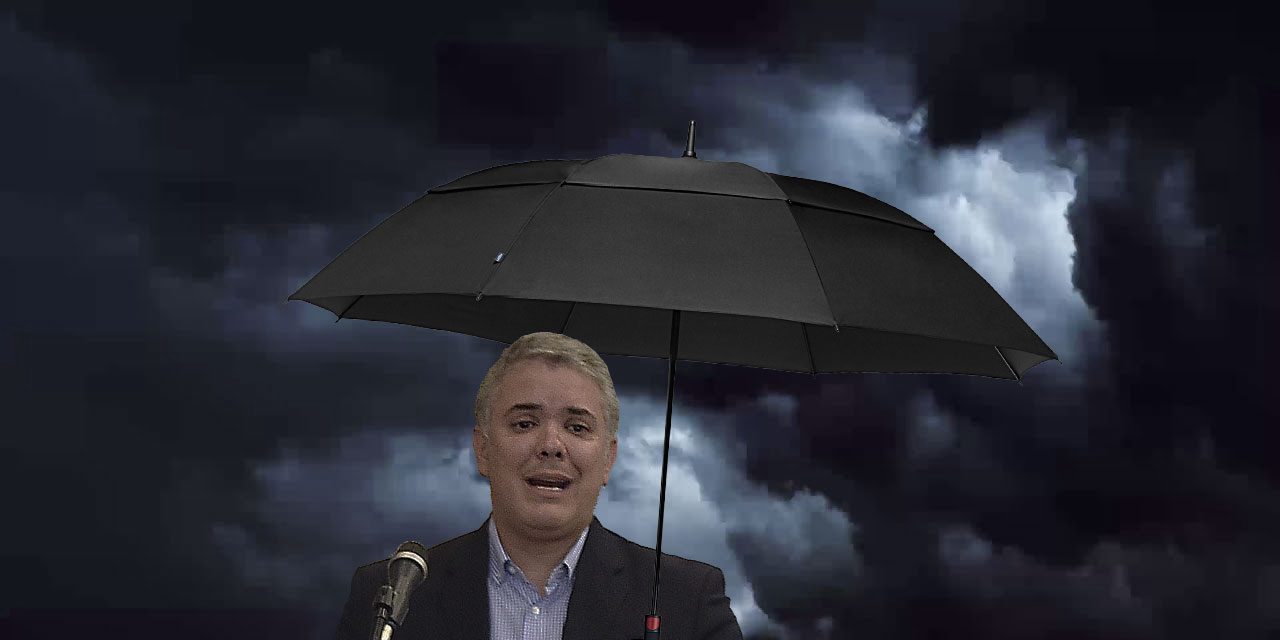Medical personnel in Colombia are rebelling over their life-threatening working conditions as the coronavirus pandemic has the country’s healthcare system in the first stage of collapse.
Doctors have resigned while others embarked on protests as tensions between medical personnel and the authorities have come to a boil.
The hospital disaster
Medical personnel throughout Colombia rebelled on Thursday after a poll by the Colombian Medical Federation that exposed a lack of vital protective clothing and masks to protect the doctors and nursers against infection.
In the northern city of Cartagena, more than 20 doctors resigned from their hospital over the lack of protective clothing and not having paid in months.
The mass resignation came a day after the Colombian Medical Federation released a poll among more than 840 medical personnel exposing the lack of protective clothing and masks and footwear.
Colombia’s hospitals unprepared for coronavirus, personnel working under threat: federation
In Bogota, doctors protested before the Health Ministry about the life-threatening conditions they are expected to work in.
Also in other cities doctors and nurses laid down work. “Nobody can force us to commit suicide,” said Sergio Isaza, the president of the Colombian Medical Federation, which has lost all confidence in the government.
Colombian Medical College president Roberto Baquero
The testing disaster
The health institute dramatically increased its diagnostics capacity over the past weeks, from 1,600 to 5,000 daily results between March 6 and Thursday.
The INS initially only had one lab in Bogota and on Thursday finished its 23rd of the diagnostics facilities spread throughout Colombia.
The health institute expects some 4 million people to be infected by the virus. Because 6.5% of the samples tested so far have tested positive, this would mean that the INS would literally need centuries to identify all the projected infections.
INS director Martha Lucia Ospina told newspaper El Tiempo on April 1 that she hoped to have 60 labs with a total daily capacity to diagnose 17,000 tests by Wednesday of next week. At the current speed, this would allow the health institute to end testing in the year 2058.
At the current speed, the INS is likely to miss the director’s deadline of increasing its diagnostics capacity to 60 labs, thus limiting its capacity to timely spot infections, and thus reduce hospital submissions and deaths.
The INS’s lack of capacity is creating major tensions with hospitals and private health intermediaries, called EPS’s, who sometimes have to wait up to two weeks for test results.
In some cases this has led to the EPS’s not even bothering to test people with symptoms and others dying before their test results have come back.
As a stopgap solution, President Ivan Duque said Monday he was told that 700,000 quick tests would arrive soon.
These quick tests are controversial, because many scientists believe they are do not effectively increase the capacity to identify infections.
Nevertheless, Vice-Minister of Health Luis Alexander Moscoso announced the arrival of the first 47,000 of 1 million of these allegedly unreliable tests on Wednesday.
Contradicting scientists, Moscoso claimed that these quick tests “will diagnose those people who do not have a serious illness, who have no risk factors and can stay at home in isolation.”
The owner of one of the INS’s newly installed laboratories in Bucaramanga told radio station Caracol on Thursday that she was charging people $100 (COP310,000) for an INS-approved test, which takes multiple days to get a result, and $16 (62,000) for the quick tests despite people paying compulsory health insurance.
This compromises the INS’s diagnostics capacity as apparently lab resources are not used based on medical criteria, but rather financial gain.
The EPS disaster
The health institute complained in March that the EPS’s, the notoriously corrupt for-profit health intermediaries, were refusing to take tests, therefore disallowing possible infections to be diagnosed.
This finding was confirmed by the Comptroller General’s Office and the Colombian Medical Federation (FMC), which additionally accused the health intermediaries of reserving intensive care units.
This would disallow hospital doctors to direct life-saving ventilator machines to patients in critical condition. At the same time, the EPS’s were trying to increase profits by taking advantage of fear to incentivize insurance policy upgrades, according to the FMC’s vice-president, Carolina Corcho.
While the government said it would inject $1.5 billion (COP6 trillion) into the healthcare sector, it did not send this money to the hospitals.
Instead, it sent these funds to the corrupt health intermediaries, which continue to owe the hospitals billions of dollars in past debt.
Duque’s emergency capital injection was meant to cancel these debts, but hospitals said Thursday they were not paid and are still without vital medical supplies.
This was the straw that broke the camel’s back for medical personnel, many of whom have not been paid in months.
President Ivan Duque
Decades of neglect
The healthcare system began falling apart years before the major outbreak of the virus due to gross mismanagement by the government of President Ivan Duque and his predecessors.
Years-long corruption and mismanagement has brought tensions between the National Health Institute (INS), health intermediaries and hospitals to a boiling point, aggravating the crisis that has been grossly underestimated by President Ivan Duque.
If the demands of the medical personnel for immediate emergency measures aren’t met, Duque may have to deal with the health emergency all by himself.


